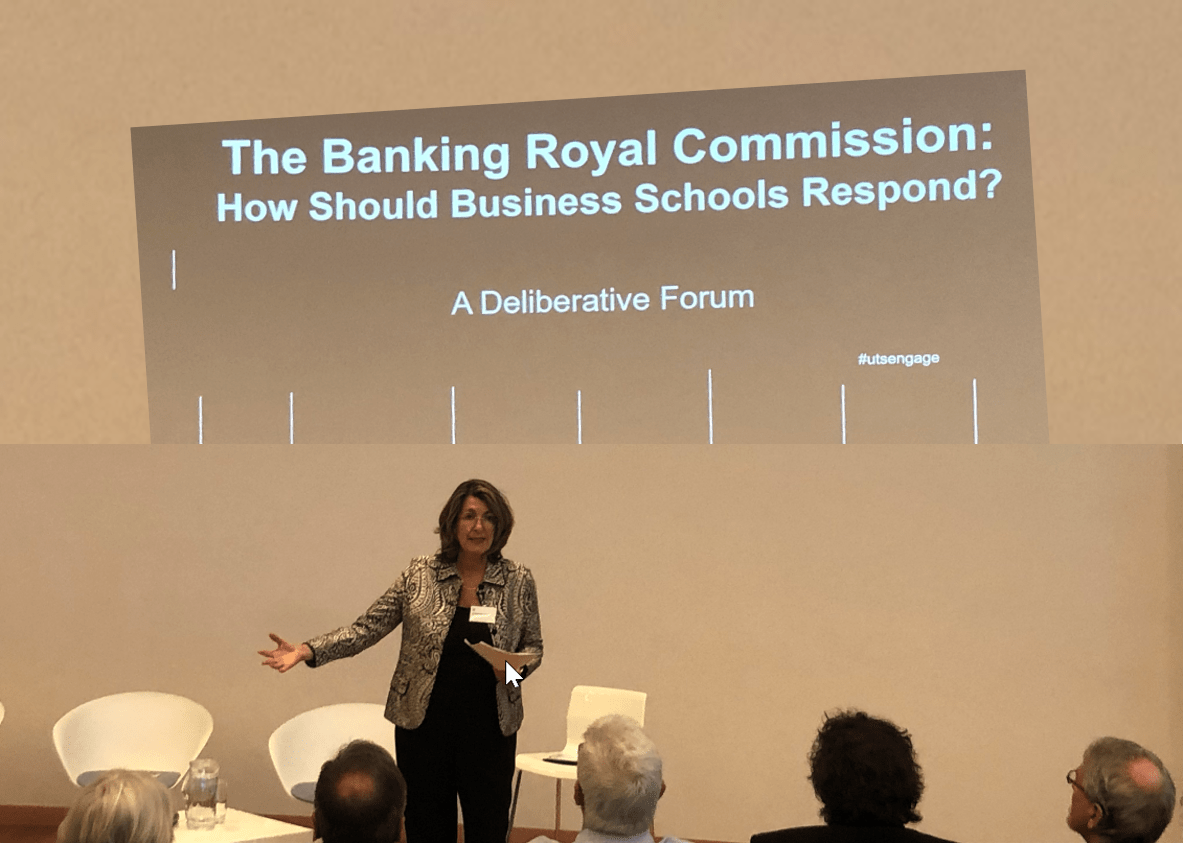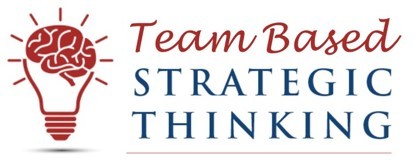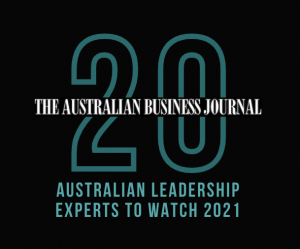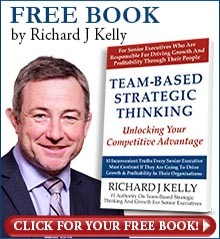
It’s a Matter of Trust!
I attended a very thought-provoking session hosted by UTS Business School last night on “How Should Business Schools respond to the Royal Commission”. Warren Hogan, UTS Industry Professor, in his opening address referred to Banking being about character and summarised Commissioner Haynes key finding to be:
1) Mangers must take responsibility
2) There must be (more) consequences for wrong doing
He purported that the answer is not about more regulation. “The more you need to regulate the more that demonstrates that we don’t trust you and ultimately banking is about trust”.
The discussions by the assembled panel of industry experts and academics centred around the ability of an individual to apply critical thinking at a systems level to help navigate the tension between the short-term profit imperative and long-term value creation. Fundamental to this was the discussion of the impact of morality and ethics of how decisions are made.
Any casual conversation with banking employees about the findings of the Royal Commission will tell you that they believe that the vast majority of employees are very good people. So, what happened? Was it just a few bad apples as some would suggest? I think not. The failings are long term and systemic and have implication on the whole of Australian society. So, what are these systemic failures and what is the role for business school’s in resolving these issues.
I was intrigued by the comments of the ongoing specialisation of roles within the banking Industry, that there are no longer banking generalist who know how the whole system operates including the role of ethics and morality in the decision-making process. It would seem that with the ongoing digital transformation of banks and reliance of sophisticated IT systems and process to transform their cost structures has meant that customers have turned into databases and as our moderator Rosemary Sainty pointed out “it’s very hard to empathise with a database!”
I was told by my grandfather to judge a man’s character not by the answers he gives but the questions he asks. It would seem that the banking and finance industries current leaders have not “drank the milk” to be able the ask these questions to hold themselves accountable and responsible. Unfortunately, this is not going to be fixed by business schools in and of themselves. I think that as best they would be able to, in the words of UTS’s Dr Walter Jarvis, help “cultivate moral accountability”.
This leads to a larger social dilemma. When did our society stop holding the virtues of honesty, integrity and morality to the same level as previous generations? As much as I hate to mention it you only have to understand the concept and watch an episode of “Married at First Sight” to understand the bankrupt state of morality in this country. Just for the record this show attracts over 2 million Australian viewers per episode.
I would put to you that it is not our academic institutions* that should be “front and centre” in building ethics and morality in the people of this country, but our schools and religious institutions. At this they are sadly failing. I speak from first hand knowledge of the demise of the Christian religions impact on society to under pin a value and beliefs system that builds the character of the people in our nation.
When we turn to trust being betrayed by bankers, there is no wonder that this has occurred when you understand how significant the breach of trust has been in the church child sex abuse cases that have been exposed through that royal commission. How many of the senior leaders of the banking Industry have been touched by these issues. If you can’t trust the church, who can you trust? Just to further emphasise this point in the degradation of our society, we are about to have another royal commission into Aged Care. So fundamentally, we as a society have been unable to properly care for the people who cared for us. This is
*I do think they have a role in the study and understanding of the philosophy and principles that underpin ethics and morality
“Your organisation is perfectly designed for the results that you achieve” – W.Edwards Demming



